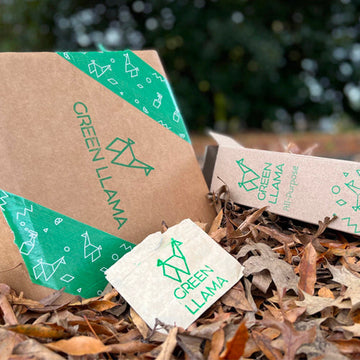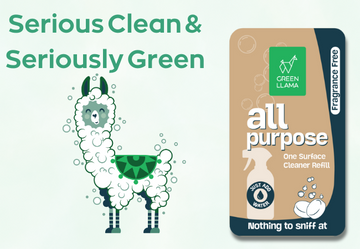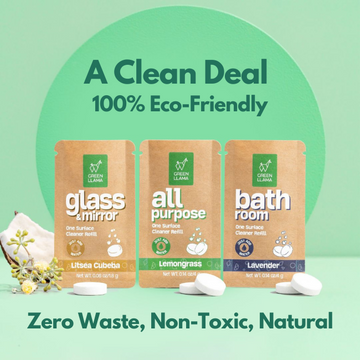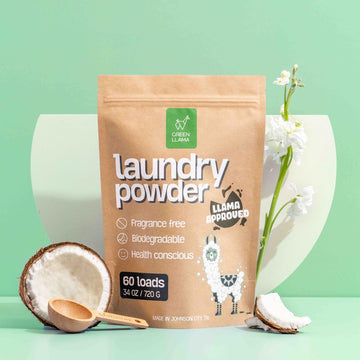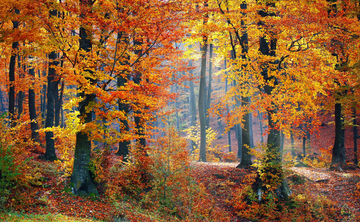Sustainable Packaging: Closing the Recycling Loop with Smarter Design
by Kay Baker on Nov 21, 2021
Summary
- Recycling ≠ Packaging: Only 9 % of plastic is recycled[1]. Poor packaging design keeps that number low.
- Why Design Matters: Plastics degrade every time they are remelted, limiting reuse[2].
- Better Materials: Glass is infinitely recyclable[3], and certified compostables give food waste a second life[4].
- Green Llama’s Fix: Compostable refill packs + glass bottles = waste-free cleaning. 🦙✔️
The Recycling – Packaging Disconnect
Globally, a mere 9 % of plastic waste is successfully recycled[1]. Yet many brands still wrap eco-friendly products in single-use plastic. The result? Even diligent recyclers can’t keep up, and landfills grow.
The Problem with Conventional Packaging
Plastic is cheap, light, and durable, but that durability means it doesn’t disappear. Worse, every mechanical recycling loop snips a few polymer chains, reducing strength until the plastic is fit only for “down-cycled” uses[2]. In other words, most plastic has a limited recycling lifespan.
Why Sustainable Packaging Matters
Designers control the first domino. Choosing compostable films, recycled paper, or glass eliminates the need for constant plastic reprocessing. Compostables can capture food scraps for soil-boosting compost[4], while paper and board come from renewable forests and are widely curbside recyclable[5].
Green Llama’s Packaging Playbook
We refuse the “cheapest is good enough” mentality:
- Compostable refill pouches certified for home/industrial compost.
- Glass spray bottles you’ll keep, or infinitely recycle, forever[3].
- Paper & cardboard for shipping, printed with plant-based inks.
- One sturdy trigger head (no perfect alternative… yet). Built to last years, then drop in your local plastics bin.
🦙 Llaina says: “Better packaging today means less llama-drama tomorrow!”
A Commitment to Real Change
We’ve sweated every gram of packaging, so you don’t have to. When you choose Green Llama, you vote for materials that work with recycling and composting systems, not against them.
References
- [1] OECD. “Plastic pollution is growing relentlessly as waste management and recycling fall short.” (2022). Link ↑
- [2] Peti D. et al. “Recent Advances in Polymer Recycling.” Polymers 17 (2025): 603. Link ↑
- [3] O-I Glass. “Glass Packaging Sustainability: Infinitely Recyclable.” (2023). Link ↑
- [4] Sustainable Packaging Coalition. Understanding the Role of Compostable Packaging in North America. (2023). PDF ↑
- [5] BioBased Press. “Why Paper Packaging Is Better for the Environment Than Plastic.” (2025). Link ↑

